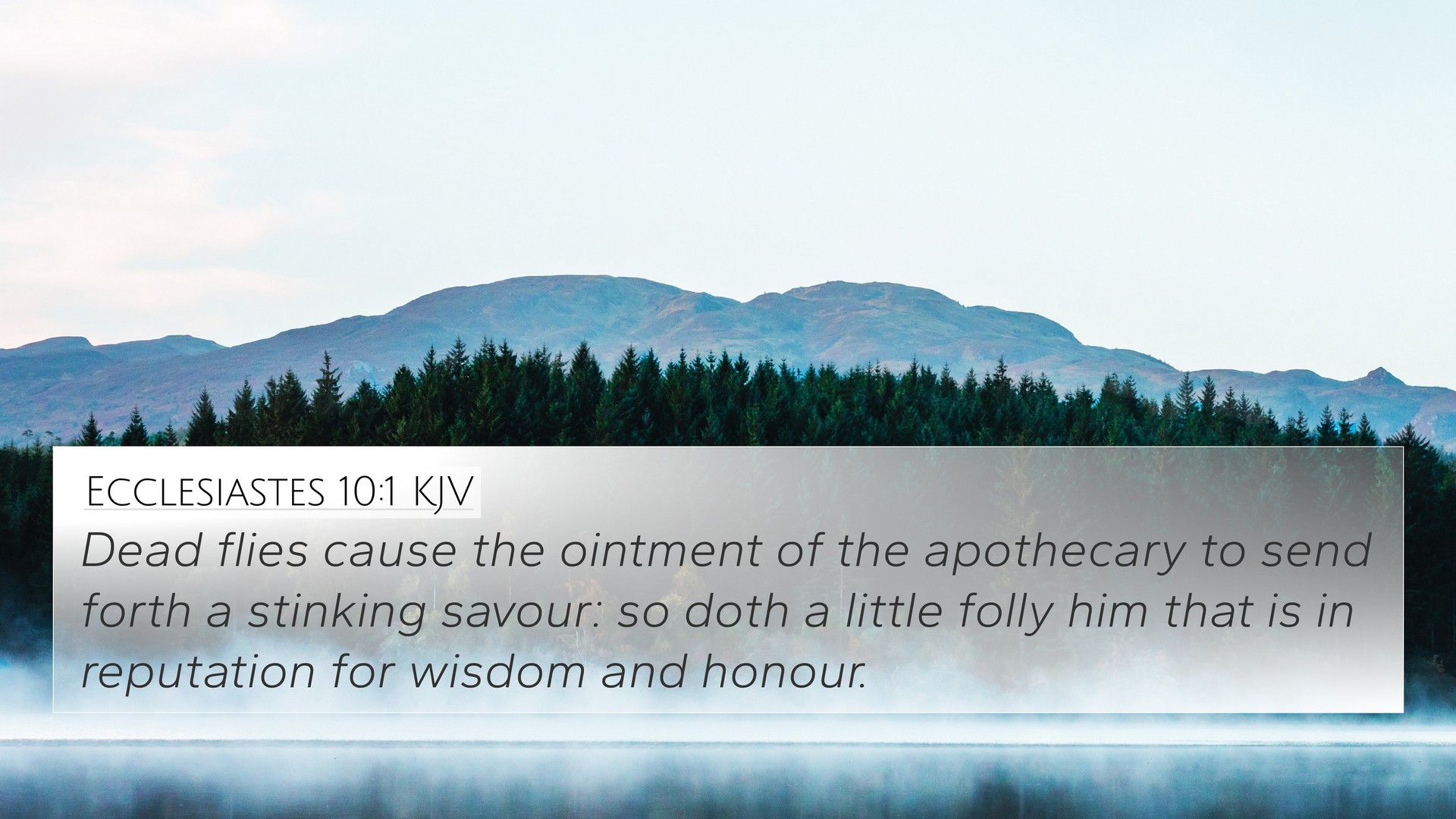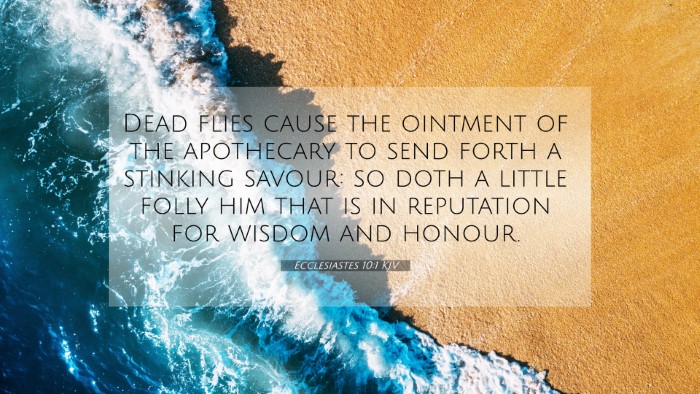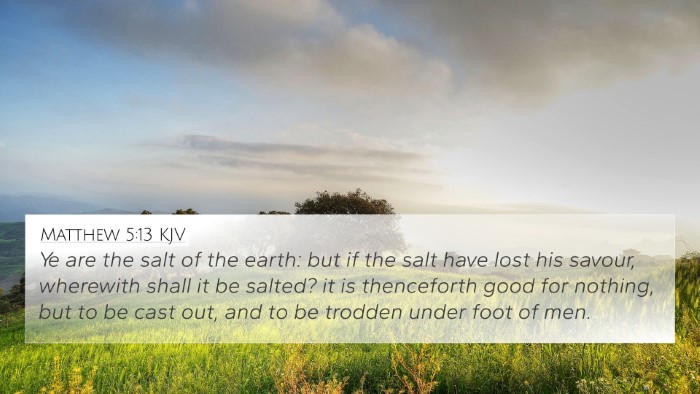Understanding Ecclesiastes 10:1
Ecclesiastes 10:1 states, "Dead flies cause the ointment of the apothecary to send forth a stinking savor: so doth a little folly him that is in reputation for wisdom and honor." This verse highlights the profound impact that small actions or misdeeds can have on one's character and reputation.
Context and Meaning
In this verse, the Preacher of Ecclesiastes uses the metaphor of "dead flies" mingling with ointment to illustrate how folly can mar one's reputation for wisdom and honor. The apothecary's ointment, which should be fragrant and beneficial, becomes unpleasant, representing how minor indiscretions can tarnish a person's good standing.
Key Themes
- Influence of Folly: The verse underscores that even a small amount of folly can overshadow a significant reputation.
- Reputation and Wisdom: It connects the importance of maintaining one's wisdom and honor, suggesting vulnerability to small moral failures.
- Moral Integrity: The integrity of an individual can be compromised by minor but significant lapses in judgment or behavior.
Commentary Insights
Combining the insights from various public domain commentaries:
- Matthew Henry: He emphasizes that folly is incongruent with wisdom and how a little folly can lead to significant consequences. The comparison to the flies and ointment illustrates the potency of bad influences.
- Albert Barnes: Barnes interprets this verse as a warning against the dangers of allowing minor errors or sins to disrupt one’s wisdom and respected status. He asserts that just as a small impurity ruins good ointment, so too can small follies ruin a good reputation.
- Adam Clarke: Clarke elaborates on the metaphorical implications, indicating that the flies represent the negative traits that can infest and ultimately spoil one’s virtues, highlighting the need for vigilance in maintaining integrity.
Bible Verse Cross-References
Ecclesiastes 10:1 can be connected with multiple other verses within the Bible, providing a deeper understanding of the themes presented:
- Proverbs 14:1: "Every wise woman buildeth her house: but the foolish plucketh it down with her hands." - Illustrates the destructive nature of foolishness.
- James 3:13-16: "Who is a wise man and endued with knowledge among you? Let him show out of a good conversation his works with meekness of wisdom." - Contrasts wisdom with the disorder brought by folly.
- 1 Corinthians 5:6: "Your glorying is not good. Know ye not that a little leaven leaveneth the whole lump?" - Highlights how small issues can corrupt greater matters.
- Galatians 5:9: "A little leaven leaveneth the whole lump." - Reinforces the principle present in Ecclesiastes 10:1 regarding minor influences having major impacts.
- Matthew 7:16: "Ye shall know them by their fruits." - The outcomes of one's character and decisions reveal their true nature, akin to the effect of dead flies on ointment.
- 1 Timothy 5:24: "Some men's sins are open beforehand, going before to judgment; and some men they follow after." - Indicates the observable and hidden consequences of behavior.
- Romans 12:2: "And be not conformed to this world: but be ye transformed by the renewing of your mind, that ye may prove what is that good, and acceptable, and perfect, will of God." - Emphasizes the need for continual renewal to avoid folly.
Thematic Bible Verse Connections
This verse encourages believers to reflect on the significance of their actions and the potential impact on their reputation and character. It serves as a reminder of the ongoing need for vigilance in one's moral and ethical conduct.
Cross-Referencing Biblical Texts
Understanding Ecclesiastes 10:1 becomes richer when cross-referenced with other scripture, revealing broader themes of folly and wisdom throughout the Bible. Such exploration aids in sermon preparation and thematic study:
- Study the connections between the wisdom literature, particularly Proverbs, Job, and the broader teachings of Ecclesiastes.
- Engage with New Testament teachings that expound on wisdom and folly, particularly in doctrinal letters such as James and Corinthians.
- Examine practical applications within the context of church leadership and individual conduct in light of biblical principles.
Conclusion
In summary, Ecclesiastes 10:1 serves as an enduring reminder of how small actions can have far-reaching effects on one's reputation and moral standing. By recognizing the connections between this verse and others across the Bible, readers can better grasp the overarching principles of wisdom, folly, and integrity.









